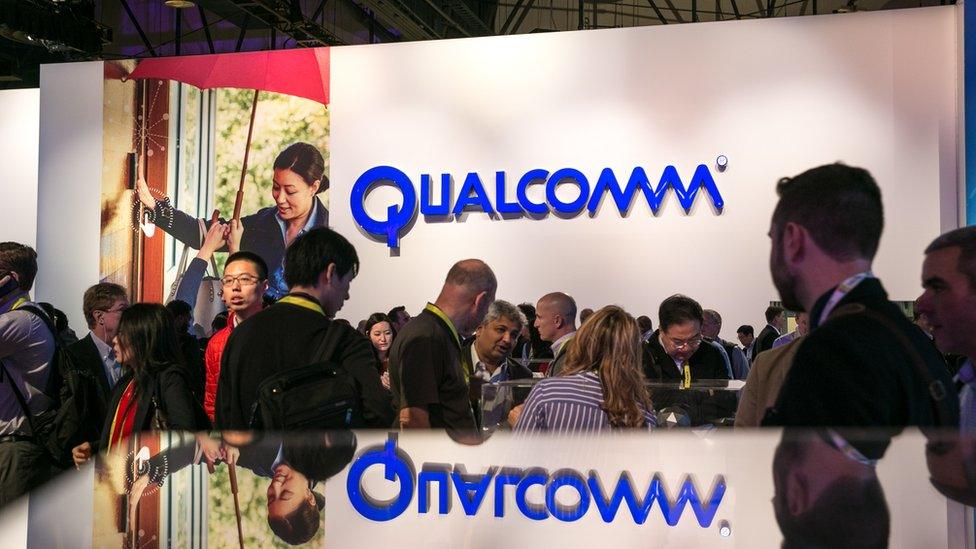Qualcomm sued in US over claims of unfair phone chip patent deals
- Published

Qualcomm, the world's biggest producer of mobile phone chips, forced Apple to exclusively use its products in return for lower fees, US regulators claim.
Details of the alleged deal were listed by the competition watchdog, the Federal Trade Commission, as part of a lawsuit against the chipmaker.
The Apple deal is just one case where Qualcomm is accused of abusing its dominant market position.
The company has saying the case was "flawed".
The commission is suing Qualcomm for unfair practices in the way it licenses its technology - especially the processors used in cell phones and other devices.
The San Diego-based firm collects royalties on its chip technology, which has been driving the company's profits.
'Exclusivity'
The commission that Qualcomm had "used its dominant position as a supplier of certain baseband processors to impose onerous and anticompetitive supply and licensing terms on cell phone manufacturers and to weaken competitors".
A baseband processor is a chip in a smartphone or tablet that handles the cellular transmission.
According to the commission, the patents that Qualcomm was seeking from customers were widely used, and should have been licensed on fair, reasonable and non-discriminatory terms.
Referring to the Apple case - which relates to the chips used in iPhones and iPads between 2011 and 2016 - the lawsuit said: "Qualcomm recognized that any competitor that won Apple's business would become stronger, and used exclusivity to prevent Apple from working with and improving the effectiveness of Qualcomm's competitors."
'Wrong'
Qualcomm said the portrayal of facts by the commission "as the basis for the agency's case is significantly flawed".
It added it had "never withheld or threatened to withhold chip supply in order to obtain agreement to unfair or unreasonable licensing terms. The FTC's allegation to the contrary - the central thesis of the complaint - is wrong."
Qualcomm shares closed 4% lower in US trade overnight.
The chipmaker has faced a series of antitrust rulings and investigations from other countries.
In 2015, Qualcomm paid a $975m (拢809m) penalty in China following a 14-month long antitrust investigation. The company also had to lower royalty rates on patents used in China's mobile phone market.
- Published2 March 2016
- Published10 February 2015